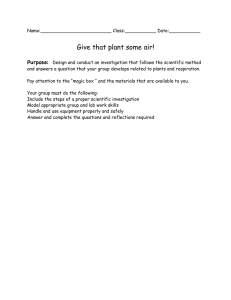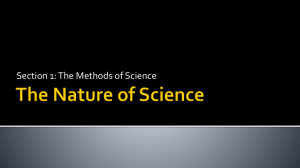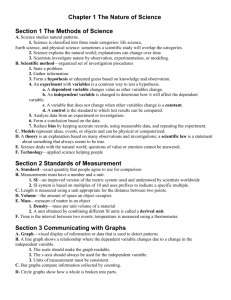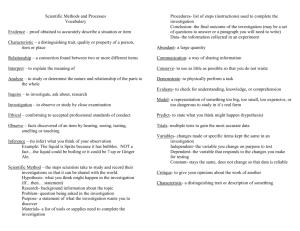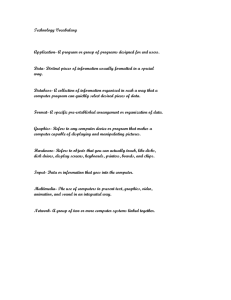Scientific investigations
advertisement
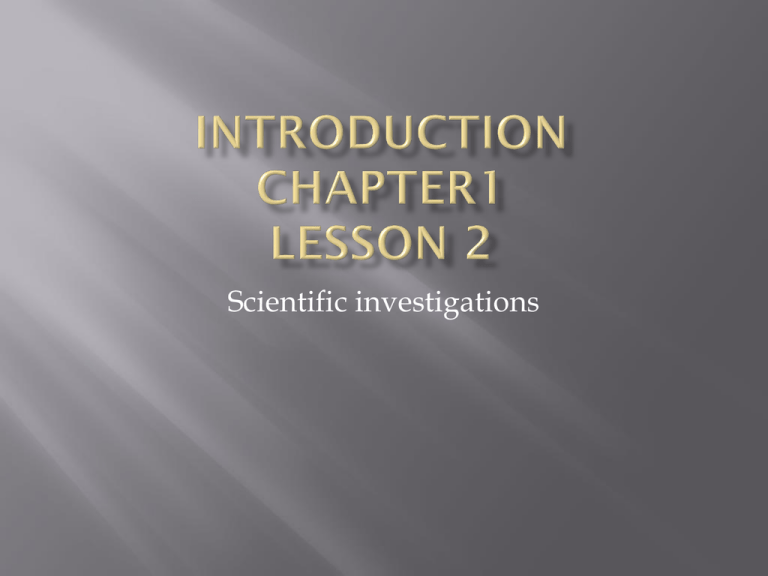
Scientific investigations Question/problem –What do you want to know Hypothesis- logical prediction for the question or problem Variables- Factors that can change in an investigation Independent-(Cause) the factor that is purposely made different by the experimenter to see what happens. Dependent- (Effect) The factor that is measured to see how the independent variable changes the outcome. Constant- variables that are kept the same for the experiment. Data- All observations and measurements made in the investigation Define a problem Form a Hypothesis- prediction of what will happen in the investigation Plan an investigation Experiment- the plan on how to test the problem Identify Variables Collecting Data- recorded and properly organized Interpreting Data- use logical reasoning backed up with the evidence gained Drawing Conclusions- Says whether the hypothesis was supported, refuted, or inconclusive. Most conclusions raise questions that must be further tested. Supporting evidence is well documented Variables are controlled as much as possible Experiments are repeated multiple times by the original investigator Investigations are replicated by other scientists Before publishing a study, Other scientists review the article. (Peer Review) Most reliable: Scientific Journals Books published by scientists about their field of study. Internet sources such as: Government or Academic webpages Unreliable Commercial internet sources Blogs by non-scientists Non-peer reviewed sources
